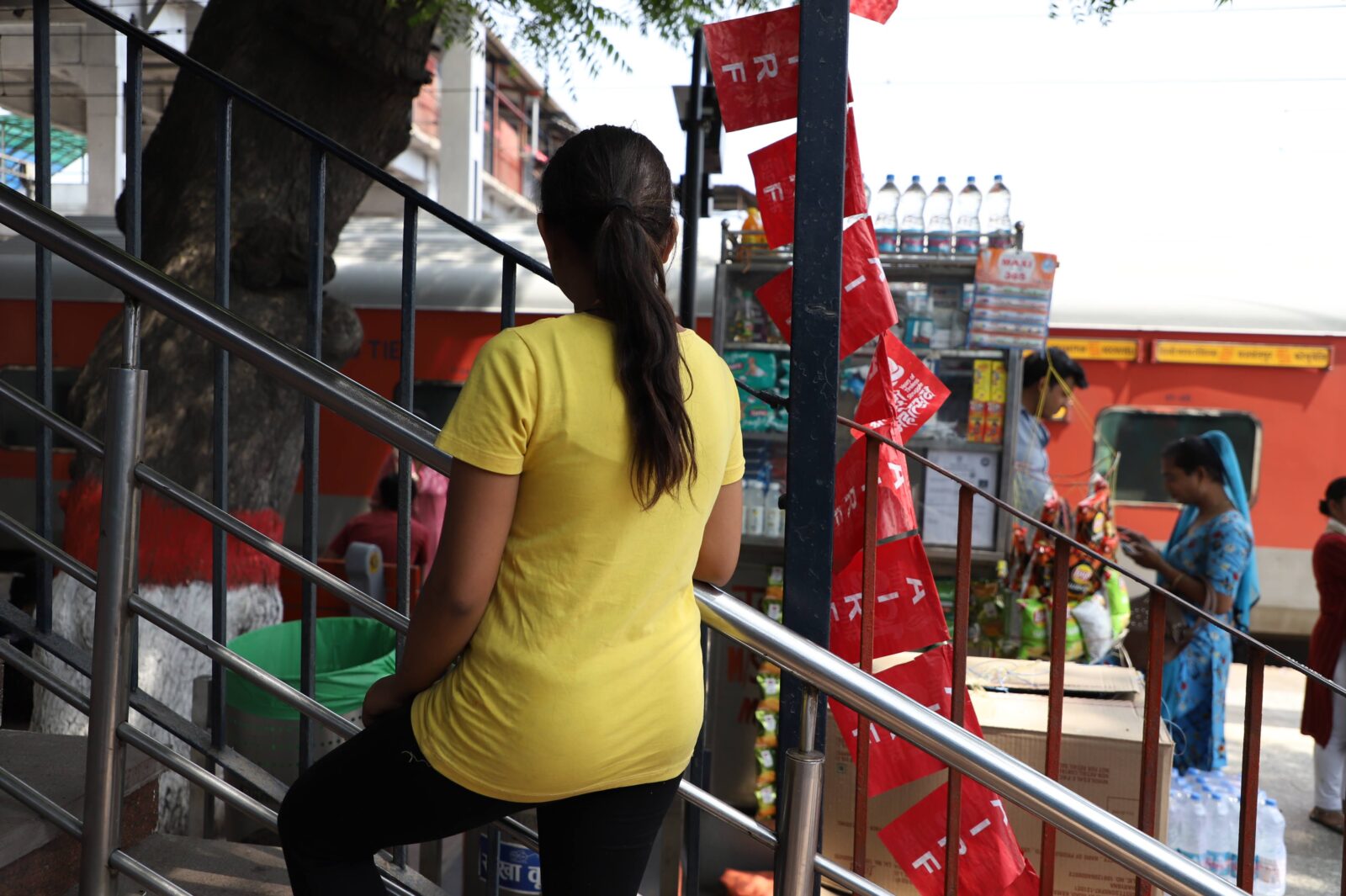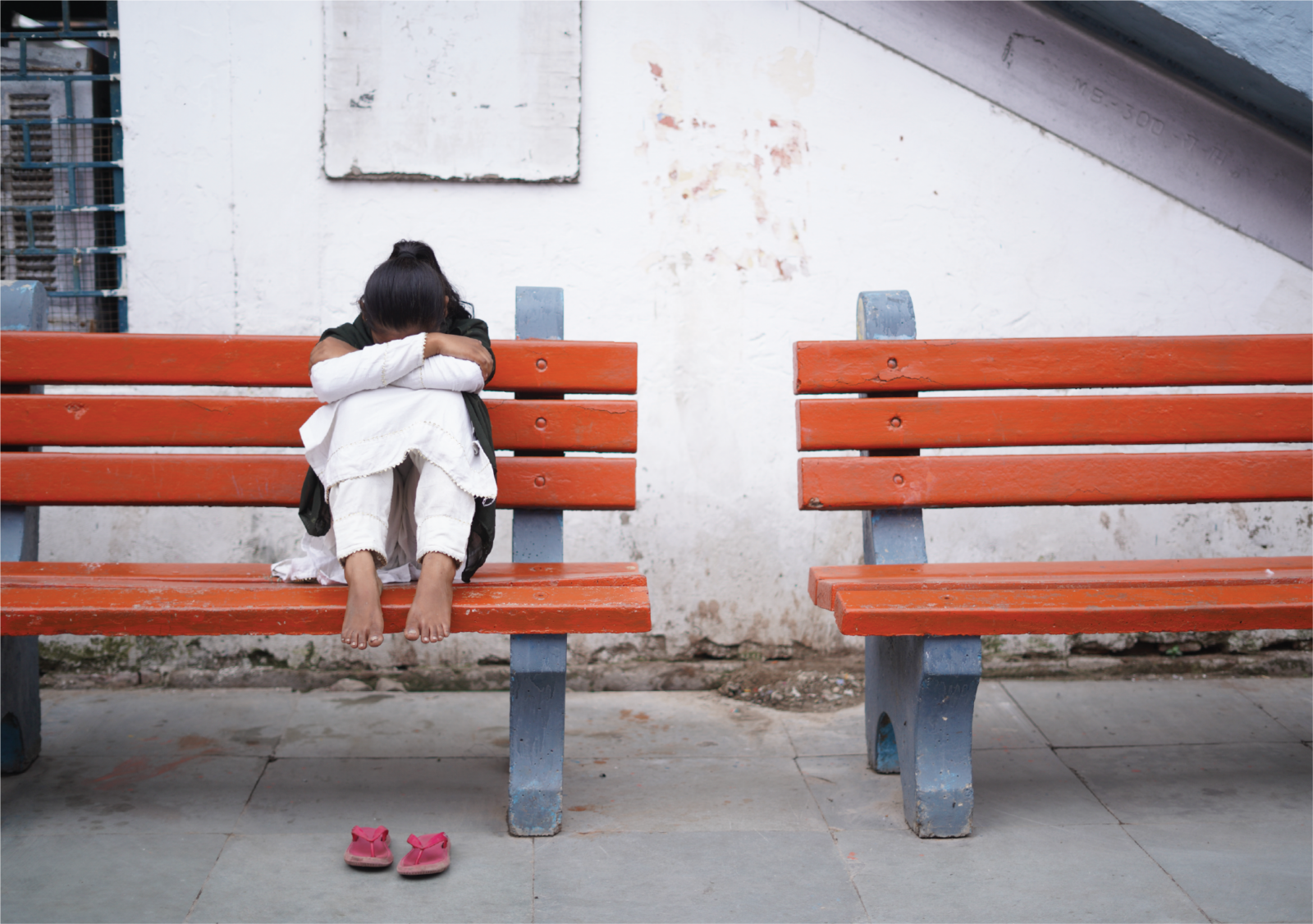On a June morning, Railway Children India’s outreach team spotted a couple of young girls wandering distressed and trepid at Anand Vihar Bus Terminal (AVBT). Their rescue and intervention revealed a murky, saddening, but also a rampant issue among girls. Read on to know.
Fifteen-year-old Amisha * and her friend Sneha had arrived at AVBT from Patna’s Bairia Bus Stand. After their rescue at the bus terminal, they were led by our team to the Child Help Desk (CHD) where their essential needs of clean water, meals and clothing were met. The girls then shared the reasons and background of their presence at the terminal.
Amisha’s Early Life
Amisha Kumari, hailed from Bibipur, in Patna, Bihar. Right from her early childhood, she faced significant challenges. Her mother, Chunchun Devi, tragically passed away due to cholera when Amisha was only five years old. Amisha’s father, Ajay Singh, 35, is illiterate and works sporadically as a confectioner. Unfortunately, most of his earnings would be spent on alcohol, an addiction he struggled with for the past six years, leaving him unable to fulfill his responsibilities as a father. In this difficult situation, Amisha and her 9-year-old brother Nikhil Kumar, who was studying in the 4th grade, moved under the care of their grandmother, Basanti Devi, a 65-year-old farm laborer. Amisha, her brother, and her grandmother lived a challenging life, rife with
economic struggles aplenty. They resided in a small mud house with a single room. Basanti Devi managed to sustain the family through a combination of government subsidies. Despite these meager resources, Basanti Devi did her best to secure care and nurturing for Amisha and Nikhil.
A Difficult Decision: Amisha’s Early Marriage
Concerned about Amisha’s safety and future, Basanti Devi made a difficult decision. Worrying that she might not be able to protect her granddaughter much longer, she arranged for Amisha to marry Sonu Kumar, a 20-year-old from a neighboring village. Sonu, who is partially disabled in his left leg, had only studied until the 2nd grade but worked as a chef in a restaurant, earning Rs. 25,000 per month. After the marriage, Amisha lived with her grandmother for four months before moving in with her husband and mother-in-law.
Only six months into her marriage, Amisha expressed to her husband that she wanted to return to school and spend a few days with her grandmother and brother. Sonu, supportive of her request, dropped her off at her grandmother’s. However, two days after visiting her grandmother, Amisha and her school friend, Sneha Kumari, devised a plan to visit Delhi. They took Rs. 2000 and some belongings, then boarded a bus from Patna’s Bairia Bus Stand to Delhi—where they were rescued by team RCI.
When RCI team members spoke to Amisha, she revealed that her grandmother had arranged her marriage to a man much older than her just six months earlier. Although she did not explicitly mention her reasons for coming to Delhi, it was evident that Amisha was unhappy in her marriage. The police conducted a medical examination of Amisha, and the RCI team placed her in a Child Care Institution (CCI) for shelter. The team then informed her grandmother that Amisha had been found in Delhi.
In a few days, Amisha’s grandmother, aunt, and husband arrived in Delhi to bring her back. In discussions with the RCI team, Basanti Devi expressed her deep concern for Amisha’s safety, which had led her to arrange the marriage. However, she also acknowledged that marrying Amisha off at such a young age was not the right decision and understood the risks associated with early motherhood. The RCI team advised her to keep Amisha at home until she turned 18 and to continue her education. Sonu was also counseled to support Amisha financially and emotionally.
A New Path for Amisha
Amisha was presented to the Child Welfare Committee (CWC) along with her grandmother, aunt, and husband. The CWC conducted separate sessions with
each of them, ultimately deciding that Amisha would stay with her grandmother until she turned 18 and would not return to her in-laws’ house. The CWC then
restored Amisha to her grandmother’s custody. Here after, RCI will continue to monitor Amisha’s case through regular follow-up.
*Name and details changed to protect the confidentiality of the child.






